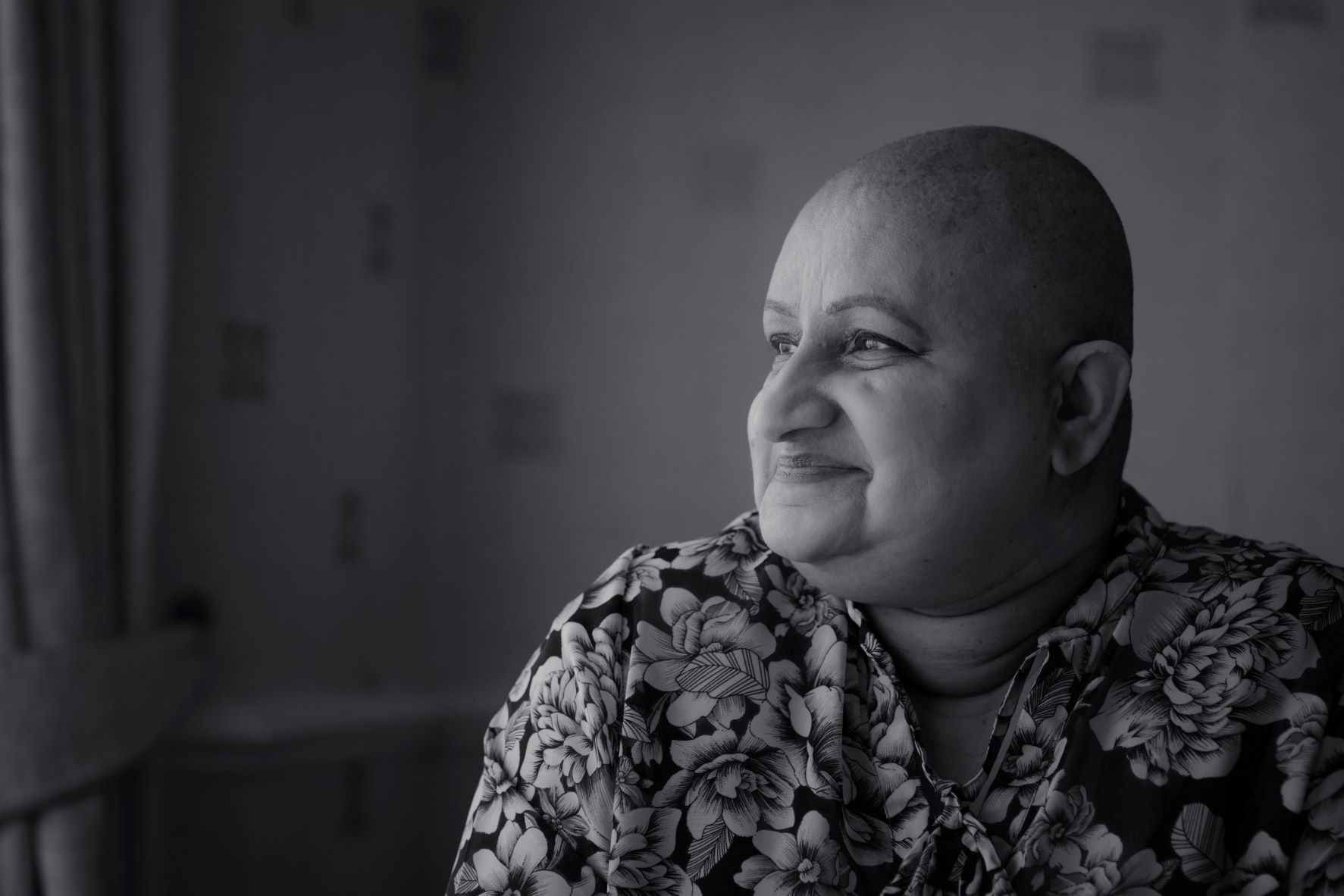Cancer is still taboo in South Asian communities but a support network in the UK is trying to provide a safe space to women who have been given a positive diagnosis.
Samina sat in her doctor’s surgery worried about the lump she had recently discovered in her breast. When he asked her about the last time she had checked her breasts, she had no idea what he was talking about.
“My husband found my lump. I had no idea it was there. I never self-examined. Nobody ever talked to me about it,” says Samina who was diagnosed with stage 3 breast cancer in 2015.
Samina was embarrassed to face her doctor because of her ignorance about breast examination. “Why didn’t I know to check my breast? I am an educated, professional woman and I still did not check myself,” she says.
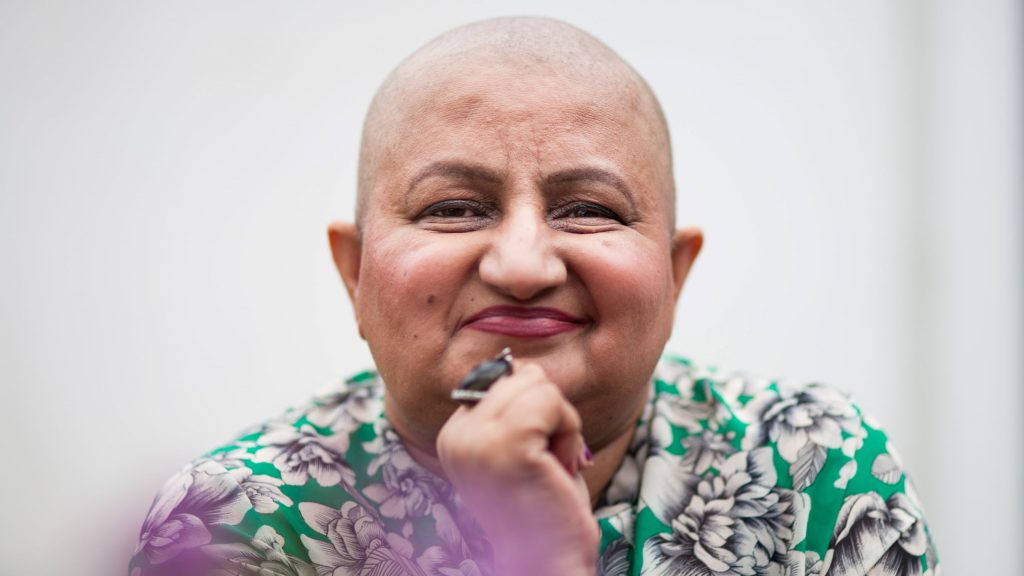
“There is such a taboo about breast cancer in South Asian society,” says Samina. “Often people don’t even say the word, let alone talk about it.”
Samina feels that some health messages don’t go through because of the cultural norms in South Asian society. “In the western culture, people discuss things very openly, whereas, in a lot of South Asian communities, especially the Muslim communities, people don’t like to discuss things like private parts or women’s issues.”
The stigma around cancer in these communities further prevents discussions that can lead to awareness. In the case of a positive diagnosis, women are reluctant to talk about their illness or ask for support for the fear of judgment and alienation. Religious or cultural values often cause people to believe that cancer is some kind of divine punishment for their sins.
“Community controls us,” says Samina. “Families of cancer patients don’t want them to talk about it and want them to look as normal as possible. They don’t want to be seen differently.”
Despite these issues, Samina decided to be open about her diagnosis and treatment and started sharing her journey on Facebook by posting pictures. It struck a chord and she received a lot of positive messages from people in her community who had similar experiences.
“Someone messaged me saying that their mother passed away from cancer but they were never allowed to talk about it. When they saw my pictures and me smiling in them, it allowed them to grieve their mother. It made me think about these women who have buried their mothers, whose fathers or brothers didn’t allow them to talk about it. It became clear to me that they needed some kind of support,” she says.
The more women share their stories of cancer the more people will start to see and acknowledge the issue and see it as a story of strength and resilience,”
Samina hussain
It also became apparent to her that South Asian women are conspicuously absent from any discussions about breast cancer. In 2018, when she attended a conference on breast cancer in Bristol, she found herself to be the only South Asian woman there. “People like me don’t show up,” she says.
In 2018, she started her initiative, called ‘Sakoon through Cancer’ to address the lack of awareness, representation, and support for South Asian women with cancer. The word Sakoon in the Urdu language means tranquillity and peace. The organization provides a safe space for women to share their issues and concerns, get the right information and have someone to talk to without being judged.
Sakoon deals with multiple aspects of support that the patients might need, from helping them find a service they need, to talking to the women about their issues. “We are always there to talk when we are needed. We keep reiterating the message that you are never alone,” says Samina.
Samina found it necessary for South Asian women to get the support that is specifically tailored to their needs. She feels that even though a lot of charities and mainstream support organizations in the UK claim to include and support South Asian women, their approach is superficial and tokenistic. She pins it on the inability of these organizations to identify and recognize cultural differences, their identity, and the difficulties they face as being different from other races.
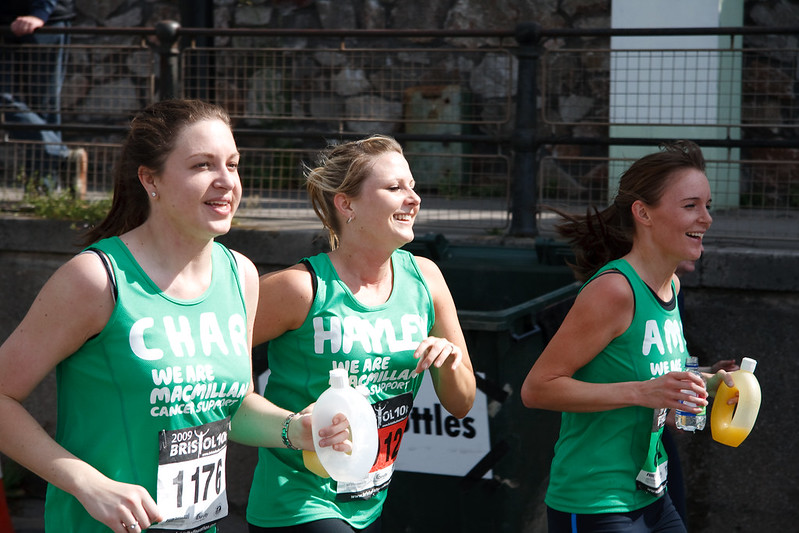
British South Asian women have reported a significantly higher prevalence of symptoms related to depression following a cancer diagnosis as compared to White British women. Women from the community were found to have more feelings of hopelessness, fatalism, and denial compared to other populations.
Samina found it necessary for South Asian women to get the support that is specifically tailored to their needs. She feels that even though a lot of charities and mainstream support organizations in the UK claim to include and support South Asian women, their approach is superficial and tokenistic. She pins it on the inability of these organizations to identify and recognize cultural differences, their identity, and the difficulties they face as being different from other races.
“Mainstream support for cancer is very Caucasian, unfortunately,” she says.“I was given an information book by a major cancer charity but it did not have any pictures of women like me. It didn’t help me at all except that I used it as a door stopper.”
There is also a lack of consideration for the culture of modesty in many South Asian societies. A lot of awareness movements around breast cancer revolve around women opening up about their bodies. In the UK, pink bras have been linked with raising awareness for breast cancer but it ends up alienating women from more conservative cultural backgrounds as the aspect of nudity does not align with their values.
“South Asian community culture doesn’t allow their women to talk about their bodies the way western cultures do. But we are often judged for it and seen as backward. Women like me are not able to relate to a campaign like this because our values are very different,” says Samina.
Sakoon provides a platform that is specifically designed to support South Asian women keeping in their mind their cultural sensibilities and creating a space where women can open up and seek help without feeling out of place.
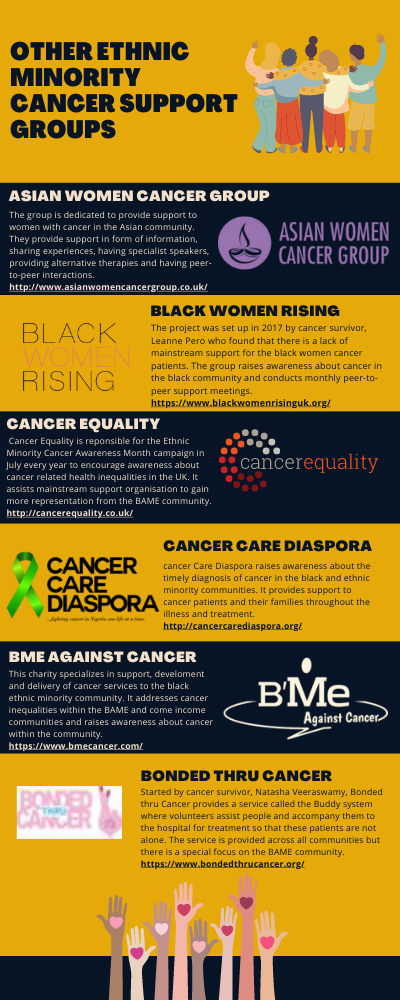
Through the means of the ‘Never Alone’ and the ‘Good to Talk’ programs at Sakoon, Samina and her network of volunteers help the patients navigate their journey through cancer. Many of the volunteers are cancer survivors themselves. A patient in need of support is paired with a volunteer with a similar experience so that they can feel understood.
“Sometimes it’s just good to talk, even if just to share the pain and hurt of being diagnosed. Sakoon is a safe space where we maintain privacy and confidentiality. It’s their journey, we are just here to walk beside them,” says Samina.
Reeta, a breast cancer survivor who accessed Sakoon through Cancer for support says that having someone to talk to made her feel less alone. “I had no support outside my family and had no one to talk to except my doctor,” she says. “My daughter introduced me to Sakoon. I could talk to them about anything, about how I am feeling, the side-effects of treatment, things I could do to feel better, and what lies ahead. It helped me a lot.”
With covid, a lot of their work was shifted online but Samina says it is a good thing because it makes it easier for people to access support without having to be physically present, which can be a challenge for many patients. “Our strength is having big conversations online. And those who were not familiar with technology, their daughters or their sisters would help log them in so they can listen.”
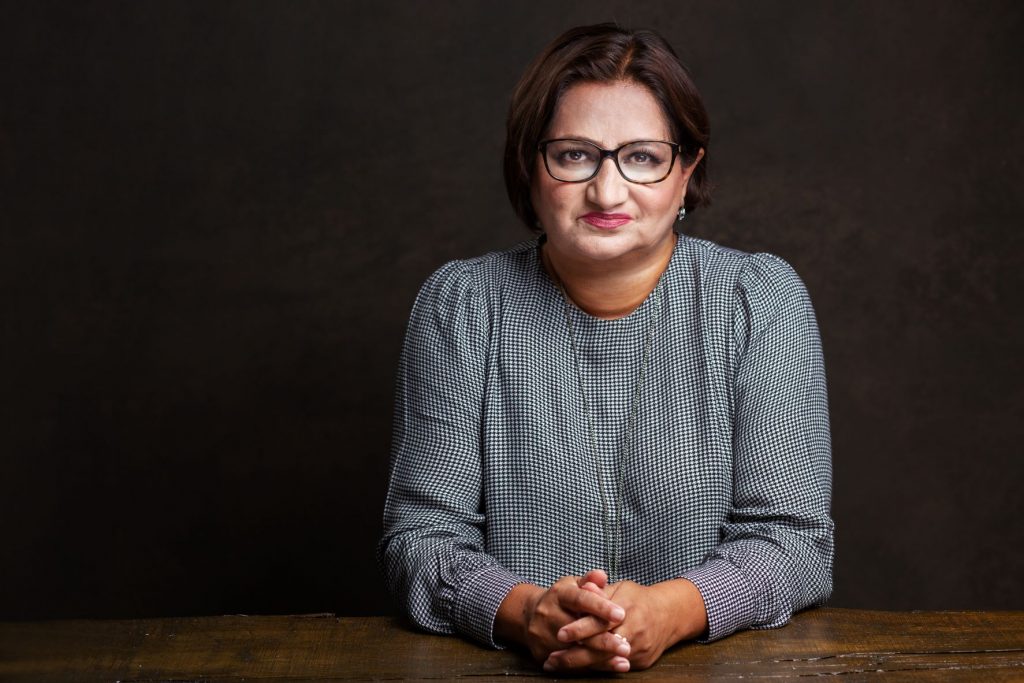
Samina also holds awareness workshops in schools for female students and teaches them how to check themselves for breast abnormalities and also gives them leaflets that demonstrate how to self-examine. She considers it a crucial step in raising awareness at the right stage to make the young generation more health conscious and breast aware. “I wanted to do this because I was never taught to check my breast. No one spoke to me about this when I was at school.”
Through her charity, Samina has been able to support hundreds of women in the last few years through her work and with the help of her volunteers. She is grateful for her recovery and for every chance she finds to help women from her community.
“I got the opportunity to share my story and it’s out there because it’s a way into having more conversations and I truly believe the more women share their stories of cancer the more people will start to see and acknowledge the issue and see it as a story of strength and resilience,” says Samina
But it’s still a long way to go for South Asian women with breast cancer to find representation in the mainstream according to Samina. She stresses the need to bring more voices and stories together to build a strong presence and be counted.
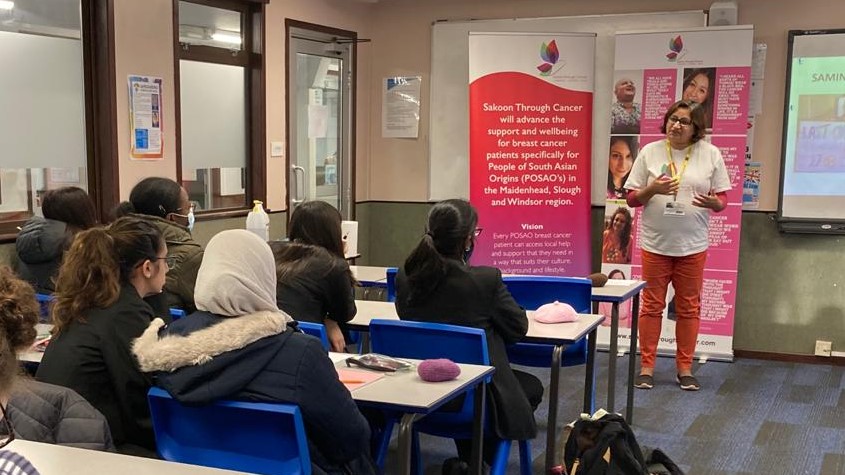
“I think we have not shared enough stories about South Asian women and breast cancer,” she says. “We only hear these stories anecdotally but there is no voice that comes together as a strong foundation.”
Through her work, Samina hopes to be able to influence health providers and the government to think about the quality, diversity, and inclusion of South Asian women in the UK’s cancer narrative. “Government and organizations talk about the inclusion of South Asian women but has anybody asked these women what they would like?” she asks.
She also wants to increase her reach to more women from the community and help them find the strength to overcome the challenges that they face and break free from the stigmas and beliefs that hold them back.
“Fighting Cancer is about empowerment, it’s about resilience, it’s about loving yourself to live in harmony,” says Samina. “The minute women step into the space of loving themselves, the whole conversation around cancer can change.”
